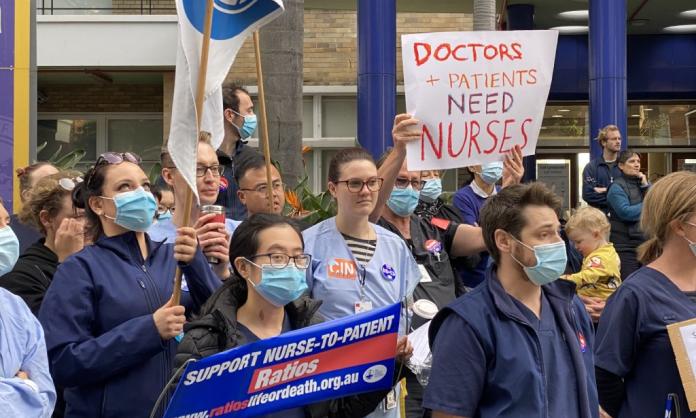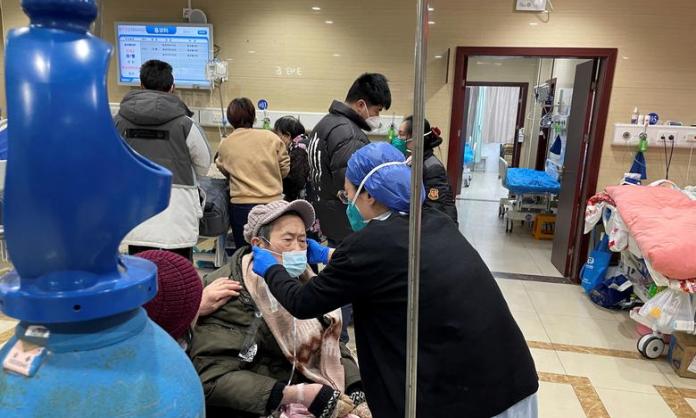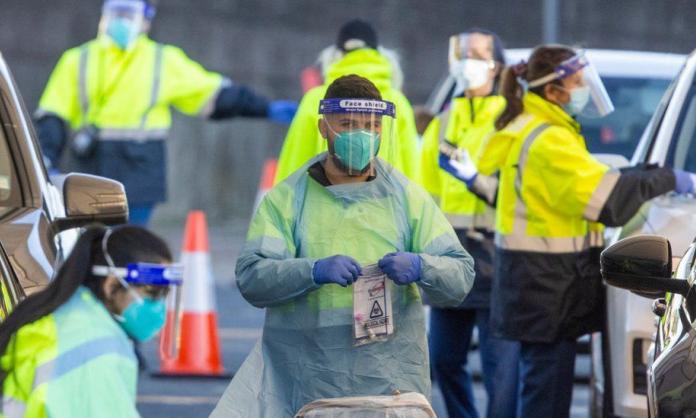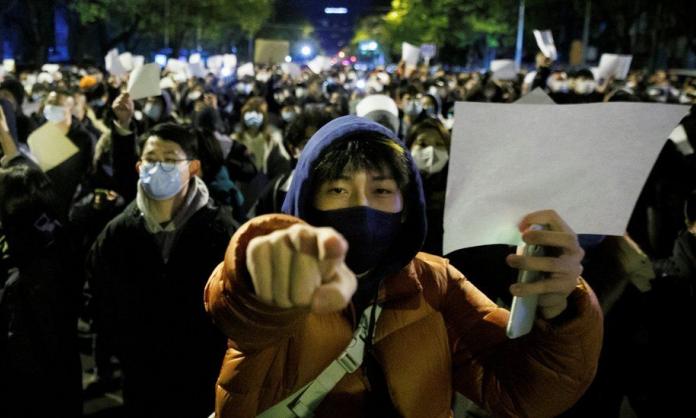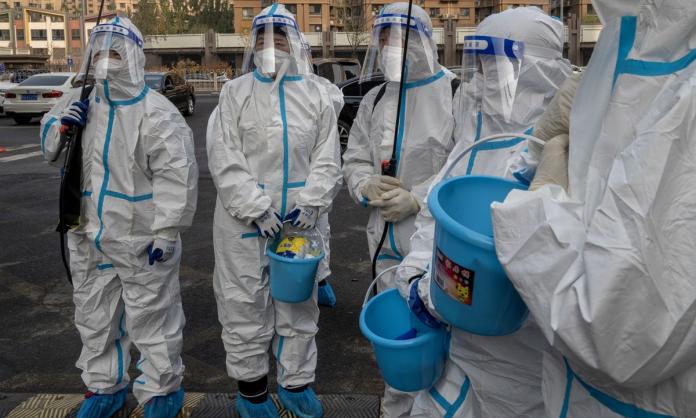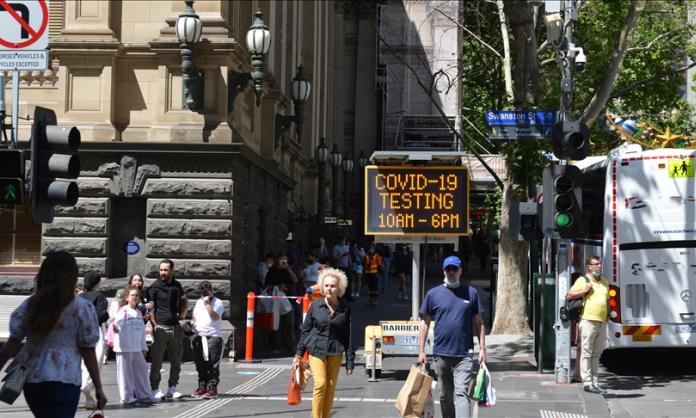Nurses and midwives across New South Wales are striking on 15 February. With 73,000 members—48,000 of which work in public hospitals—the NSW Nurses and Midwives’ Association (NSWNMA) is the largest union in the state.
After two months of the Omicron surge, two years of the pandemic and a pay freeze, a decade of capped public sector wages and decades more of eroding conditions, nurses have responded 97 percent in favour to their union’s call for a state-wide strike and protest outside state parliament.
It’s a bold move in the midst of a pandemic when the hospital system is under incredible strain. The last thing nurses want to do is add to patients’ suffering. But it is also a disservice to patients for healthcare workers to continue trying to scrape by with inadequate resources and funding without complaint or resistance. To limit the damage of this and future pandemics, there is an urgent need for a large-scale campaign for governments to invest more in hospitals and healthcare, which campaigns by nurses can and should be a part.
Skip is a theatre nurse and branch secretary of the union at Westmead Hospital. There are 2,000 union members in this hospital alone, which has voted to strike for 12 hours. For Skip, this is a long time coming. “The last couple of years have created a lot of despair and resentment,” he told Red Flag. “Those massive fires, then came those devastating floods, then came three unnecessary waves of a very contagious pathogen.”
Sandra is a branch delegate at Royal Prince Alfred, where a vote for a 24-hour strike prompted six other hospitals to follow suit. She said the state Liberals have used the pandemic to wage class war on health workers. “2020 was the year of the nurse and the midwife and they smacked us with a wage freeze, and that pissed us all the fuck off,” she said. “But we kept trudging on, hoping that 2021 might be a little bit better.”
It wasn’t. The Berejiklian government’s 1.04 percent pay offer was a second kick in the teeth, and union members took strike action in defiance of industrial law at several hospitals. Then the state was hit with a Delta wave just as the nurses’ industrial campaign was beginning to gather steam. After gritting their teeth through lockdown, hospitalisation surges in October, and now the Omicron wave, nurses have reached breaking point. “The last two or three months have been absolute hell,” said Sophie, a midwife at RPA. Then a pause. “Absolute hell.”
The problem is not only the warzone of COVID-19 patients in intensive care units. Nurses are catching the virus in and out of work, thanks to the let-it-rip strategy of premier Dominic Perrottet. Staff shortages and increased hospitalisations have converged and exploded across all areas.
“You rock up to work. There’s three people who’ve called in sick. If you’ve got five mums and five babies, you can’t do everything for any of them,” Sophie explained. Sandra described “being handed over 10 patients, plus someone who’s just deceased, for your shift as one registered nurse with one assistant”. Skip said that, while the union is fighting for four-to-one patient-staff ratios, “we [at Westmead] had a situation where there was essentially one nurse to 14”.
David —who became fully registered just this month— explained that the COVID-response system outside hospitals is also a disaster for health workers and the sick. “[At the testing clinics] I was working 12-hour days in either scorching heat or torrential rain. When I was working in quarantine hotels, there were 50 patients between two junior staff,” he said. “The only give in the system isn’t additional staff and resources, it’s the exertion and wellbeing of nurses working 12, 16, even 18-hour days in absolutely miserable conditions.”
The government’s solution to shortages is to cut the isolation period for infected health workers. They also changed legislation so that, to access COVID-19 leave or file for compensation, health workers must prove that they caught COVID-19 at work—something the union argues is almost impossible to prove. Just as they do in wartime, politicians who never see a second of combat call those on the front line “heroes” while they treat them as cannon fodder.
“My co-worker had COVID and came back after eight days, she didn’t even need to test negative”, Paul, a delegate at Prince of Wales said. “Managers have off-the-record been telling workers to come back before their isolation period is up. People are working massive overtime: they would still rather do that than work with infectious colleagues.”
No wonder anger is white-hot over comments by Perrottet and health minister Brad Hazzard that the health system is “coping”. This disaster has been decades in the making. Successive governments have stripped hospitals to their bare bones, running them like factories where patients, beds, and nurses count only as turnover, overhead and labour costs.
“Staffing was already at the absolute minimum of what they could provide,” Paul said. “As soon as you have this huge loss of staff to COVID-19—and a mass exodus from the profession—then there’s no buffer, no fat in the system for times like this. It’s all been cut away.”
“It’s kind of hard to get across how bad the emergency departments are,” Skip said. “If you’re in emergency and you’re a category 3 [very, very sick], you’re probably waiting for 15 to 20 hours. The mental health admissions are so hard to get to, there are people sleeping on the floor.”
Hospitals are some of the biggest workplaces in the country, employing up to 10,000 people in some cases. The ability to shut down something so essential to the smooth daily functioning of the economy, especially during a pandemic, represents a major weapon for workers organised and ready to do so. “Nurses have real power right now,” Paul said, citing grocery and warehouse workers as other industries with similar potential.
Recent state-wide strikes across the railway and by public schoolteachers signal a renewed combativeness amongst a public sector workforce battered by years of wage caps, staff shortages, and heavy workloads. A nurses’ strike represents a major development in this fight. “Just a few weeks ago, teachers struck and 15,000 marched through the city in a show of force,” David said. “Nurses have a lot to contribute to this mood: you can’t keep operating a healthcare or education system on the backs of exhausted, underpaid workers.”
The government has offered a paltry 2.5 percent pay “rise” (below the current rate of inflation), whilst the union demands a minimum of 4.7 percent, alongside additional pandemic pay and a reversal of changes to workers’ compensation law. Nurses are also fighting for mandated patient-staff ratios, and that these be determined before each 8-hour shift, rather than every 24 hours, to be able to respond to surges. The ratio demands—already achieved in Victoria and Queensland—are four-to-one for wards, three-to-one for paediatric care and emergency, and one-to-one for intensive care. The union wants babies counted as patients. The dead-eyed vulture politicians, on the other hand, maintain that babies are already cared for—by their mothers.
“We want ratios, we want a pay rise, and we want basically anything they want to give us,” Sophie said. “Don’t get us started because we have a long list.” In this battle, nurses need the backing of the entire union movement. “If you belong to another union, get a contingent of your colleagues together to come to the protest and show your support,” said Sandra.
It will take a sustained strike campaign to undo decades of attacks on nurses. But collectively withdrawing their labour and marching on state parliament will do more to improve life for nurses—and for all of us who need a decent health system—than any amount of lobbying, negotiating, and voting has achieved.
“[We’re going] to take it to them in parliament, and say this is us, this is our power, don’t fuck with us,” Sophie exclaims. “We might have been silent for a while, but we’re out and we’re ready to fight, because we can’t take it anymore.”
*Some names have been changed to protect interviewees.
Striking nurses and midwives will be gathering from 10am on Tuesday 15 February outside parliament house on Macquarie Street, for the first sitting day of state parliament. All unionists and supporters are called on to attend and show solidarity.




